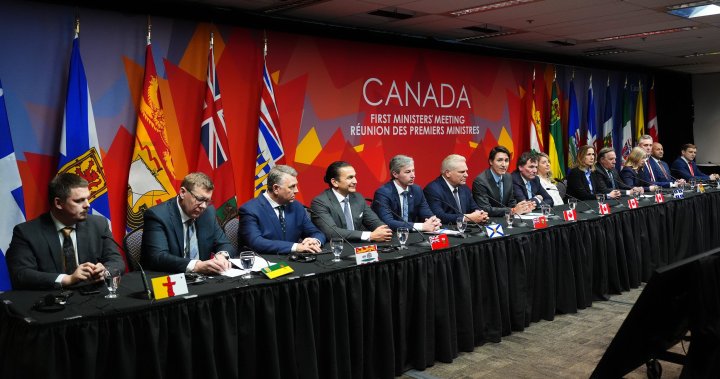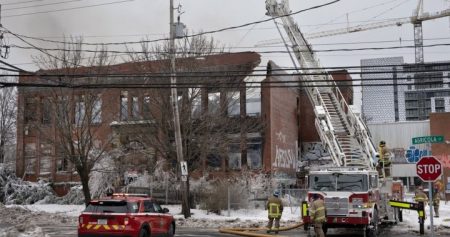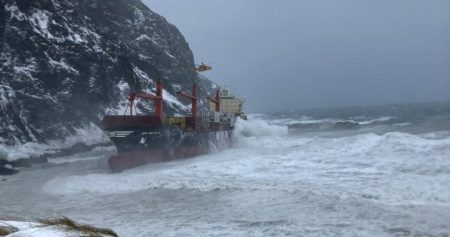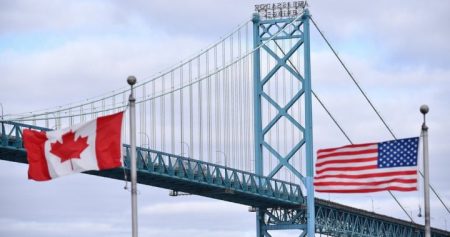Introduction: A Diplomatic Mission to Washington, D.C.
Canadian premiers are undertaking a diplomatic mission to Washington, D.C., aimed at reinforcing the vital trade relationship between Canada and the U.S. This mission comes in response to the increasing tariff threats posed by U.S. President Donald Trump, which have cast a shadow over the traditionally strong economic partnership between the two nations. On the eve of their trip, Trump imposed a 25% tariff on all foreign steel and aluminum imports, including those from Canada. Additionally, a 30-day reprieve on broader tariffs affecting other Canadian exports to the U.S. is set to expire shortly, intensifying the urgency of their diplomatic efforts. The premiers are determined to convey a unified message to U.S. lawmakers and business leaders, emphasizing the mutual economic harm that tariffs would inflict on both nations.
The Premiers’ Trip and the Historic Show of Unity
This diplomatic trip marks a historic moment, as all 13 Canadian premiers are traveling together to the U.S. capital for the first time. This unprecedented show of unity underscores the critical nature of the Canada-U.S. trade relationship and the premiers’ collective commitment to safeguarding it. Ontario Premier Doug Ford, currently seeking re-election, highlighted the importance of relationship-building during a campaign stop in Oakville. "We’re jam-packed with meetings, we’re building relationships — folks, this is all about building a relationship," Ford remarked. The premiers aim to articulate Canada’s indispensable role as a trade partner, not only to the U.S. but also to individual states, emphasizing the interdependence of their economies.
The Threat of Tariffs and Canada’s Retaliatory Measures
The U.S. tariffs on steel and aluminum, imposed without exemptions, have drawn a strong reaction from Canadian officials. Trump has further threatened to reinstate a 25% tariff on all Canadian exports and impose a 10% levy on energy imports by March 4 if an "economic" deal is not reached. These tariffs could also be triggered if the U.S. deems Canada insufficient in addressing illegal immigration and fentanyl trafficking. In response, Canadian premiers and the federal government have vowed to implement retaliatory measures, including reciprocal tariffs and a freeze on U.S. investments. This united front is designed to demonstrate Canada’s resolve and the potential economic consequences for the U.S. if tariffs are enforced.
A United Front: Premiers’ Strategy in Washington
The premiers’ strategy in Washington is rooted in presenting a united front to highlight the benefits of maintaining open trade and dialogue. Alberta Premier Danielle Smith, despite her criticism of the federal government’s approach to border security and drug crime, has joined her counterparts in advocating for a "Team Canada" approach. Smith emphasized Alberta’s significant role in energy exports to the U.S. and called for de-escalating tensions. Meanwhile, Saskatchewan Premier Scott Moe arrived in Washington early to underscore his province’s contributions to trade in energy and food sectors. The premiers’ collective goal is to foster a non-tariff environment conducive to mutual economic growth and wealth creation.
The Premiers’ Message: Interdependence and Shared Goals
The premiers are also using their visit to emphasize the deep integration of the North American economy and the importance of Canada to U.S. security and prosperity. The Council of Atlantic Premiers highlighted the historic ties between Atlantic Canada and the northeastern U.S., stressing the benefits of their continental economic partnership. Additionally, provinces are exploring ways to expand energy partnerships and diversify international trade relationships to reduce reliance on U.S. markets. Manitoba Premier Wab Kinew, for instance, mentioned ongoing discussions to establish new trade offices in other regions, such as South Korea, to broadening trade horizons.
Conclusion: The Broader Implications for North American Trade
The premiers’ trip to Washington is not merely a reaction to immediate tariff threats but also a proactive effort to reframe the Canada-U.S. trade relationship for the future. By presenting a united front and emphasizing shared goals, the premiers aim to restore the enduring friendship between the two nations. As University of British Columbia political science professor Max Cameron noted, diplomacy, even in the face of uncertainty, is crucial for long-term benefits. The success of this mission will depend on the premiers’ ability to underscore the value of their partnership and navigate the complexities of U.S.-Canada relations in a way that fostering cooperation and mutual prosperity.












